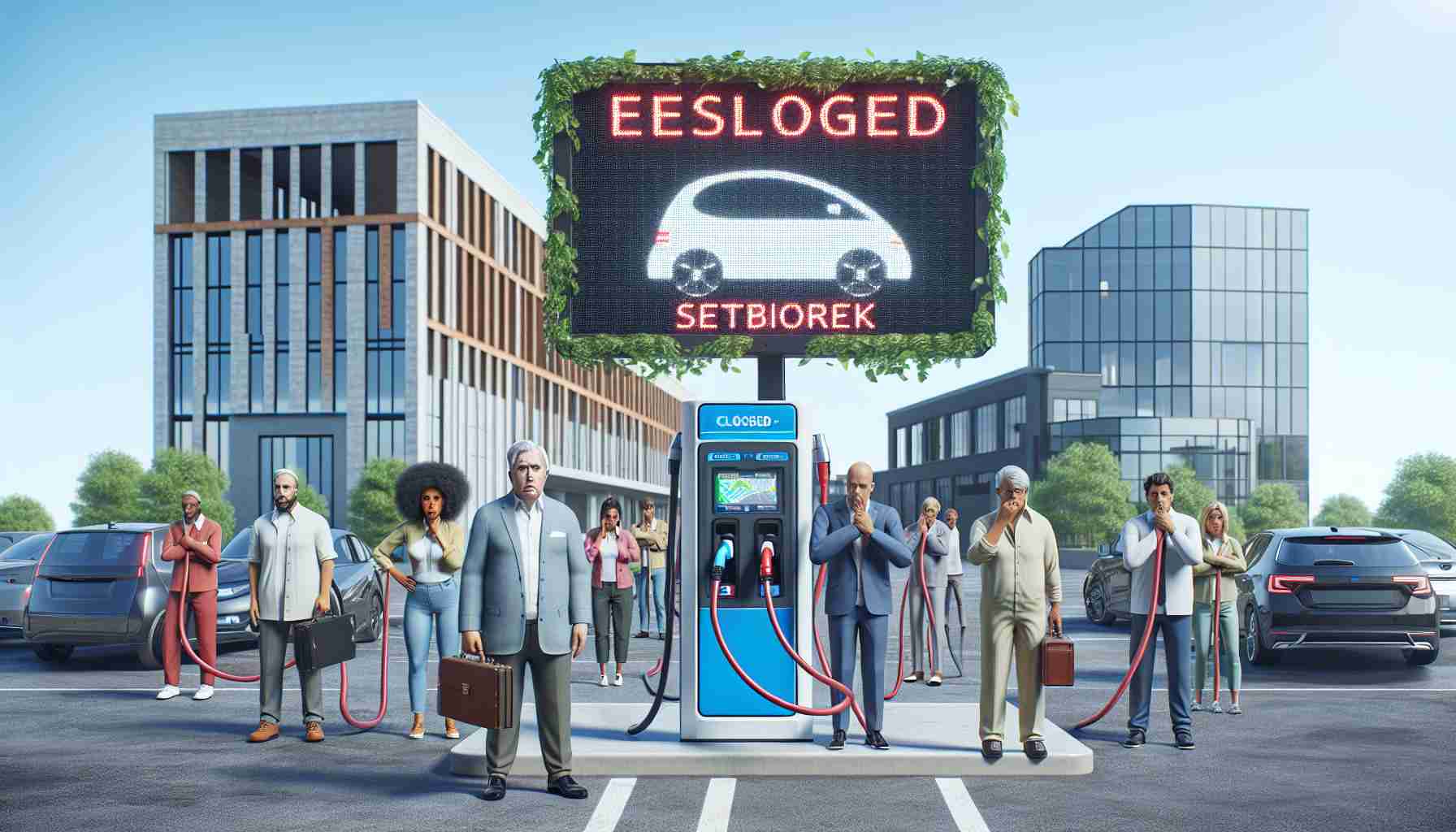- The U.S. Department of Transportation has paused the NEVI Formula Program, impacting EV infrastructure development.
- Congressman Mark DeSaulnier emphasizes the importance of electric vehicles in reducing greenhouse gas emissions and fuel costs.
- Recent changes threaten advancements made under the Clean Corridors Act, which aimed to improve national charging infrastructure.
- China dominates the EV market with 76% and over 3.2 million charging stations, raising concerns about America’s competitiveness.
- The Federal Highway Administration’s decision hinders state-level approval for charging network plans, slowing down progress.
- Urgent federal investment is needed to ensure a robust EV infrastructure and support environmental goals.
In a stunning move, the U.S. Department of Transportation has halted the National Electric Vehicle Infrastructure (NEVI) Formula Program, sending shockwaves through the transportation sector. Congressman Mark DeSaulnier, a prominent advocate for electric vehicles, voiced deep concerns, emphasizing that this decision could leave American drivers stranded in a race toward greener transportation.
With transportation being the largest contributor to greenhouse gas emissions, DeSaulnier highlights the urgent need for electric vehicles (EVs) to combat climate change and reduce fuel costs for families. He points out that while EVs promise significant savings at the pump, the recent decision reverses crucial advancements made under the Clean Corridors Act, which had secured a monumental $2.5 billion for expanding charging infrastructure across the nation.
As EV adoption surges globally—China now boasts a whopping 76% of the market, alongside over 3.2 million public charging stations—America risks being left behind without robust support and infrastructure. DeSaulnier passionately argues that our nation must make strong federal investments to remain competitive and environmentally responsible.
The Federal Highway Administration’s abrupt decision means states can no longer approve plans to deploy their charging networks, effectively putting the brakes on efforts to create a seamless and accessible EV infrastructure. The Congressman implores U.S. lawmakers to rethink this retrogressive stance, stressing that the future of transportation and the health of our planet depend on it.
Key Takeaway: The U.S. must revitalize its commitment to electric vehicle infrastructure to safeguard environmental progress and keep pace with international advancements.
Shocking Decision: U.S. Halts Electric Vehicle Infrastructure Funding!
Impact of the Halt on Electric Vehicle Infrastructure
The recent suspension of the National Electric Vehicle Infrastructure (NEVI) Formula Program by the U.S. Department of Transportation has raised serious concerns about the future of electric vehicle (EV) adoption in America. With transportation contributing significantly to greenhouse gas emissions, this decision has prompted widespread calls for renewed federal investment and support for both EVs and their accompanying infrastructure.
Market Forecasts for EV Infrastructure and Adoption
Recent analysis suggests that electric vehicle sales are projected to grow significantly over the next decade, with some estimates indicating that EVs could make up 50% of global car sales by 2030. However, a lack of infrastructure could hinder this growth, particularly in the U.S., where consumer confidence in electric vehicles is closely tied to the availability of charging stations.
Pros and Cons of Current EV Strategies
– Pros:
– Environmental Benefits: Electric vehicles contribute to reduced greenhouse gas emissions.
– Cost Savings: Lower fuel and maintenance costs compared to traditional vehicles.
– Innovation Boost: Encouragement of technologies related to sustainable transport.
– Cons:
– Insufficient Infrastructure: Many states do not have the necessary charging networks in place.
– Consumer Hesitance: Potential buyers may be reluctant to switch without guaranteed infrastructure.
– Market Disparity: The U.S. risks lagging behind countries like China, which is currently leading in EV adoption and infrastructure.
Limitations of the Current Situation
The Federal Highway Administration’s decision to halt the NEVI program was based on budgetary constraints and shifting policy priorities. This raises questions about the stability and reliability of future EV initiatives. Without a solid charging network, potential EV users may have concerns regarding vehicle range and charging accessibility, known as “range anxiety.”
Three Important Questions About EV Infrastructure
1. What does the halt of the NEVI program mean for consumers?
– The suspension could lead to a stagnation of EV adoption due to a lack of charging options, thus making potential electric vehicle buyers hesitant to make the switch.
2. How does this impact the U.S. market compared to global EV trends?
– Given that countries like China and several European nations are aggressively building EV infrastructure, the U.S. risks falling behind in both market share and technological leadership in the EV domain.
3. What are legislative responses expected to be?
– With growing pressure from advocacy groups and lawmakers like Congressman DeSaulnier, there may be a push to revisit and revitalize federal investments in EV infrastructure through new funding programs or proposals in upcoming legislation.
Key Takeaway: The U.S. must reassess its approach to electric vehicle infrastructure to ensure both environmental sustainability and competitiveness in a rapidly evolving global market.
For more insights on the electric vehicle landscape, visit Energy.gov.



















